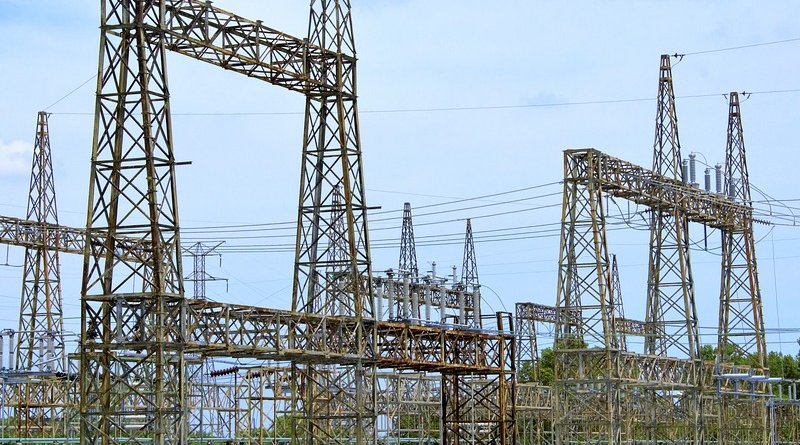EU Ministers Consider Speeding Up Connection Of Ukraine Electricity Grid To EU
By EurActiv
By Kira Taylor
(EurActiv) — EU energy ministers met in Brussels on Monday (28 February) to discuss energy security in Ukraine and the impact of the war on Europe’s energy market and energy prices, as Ukrainian activists called for the country’s quick connection to the EU electricity grid.
As Russia’s invasion of Ukraine continues, there is growing pressure to link Ukraine’s electricity grid with the EU’s to ensure the country’s electricity grid remains stable and to prevent blackouts.
On Saturday, the Ukrainian energy company DTEK said Russia was not specifically targeting critical energy infrastructure. The country’s electricity is still stable, despite continued Russian aggression.
However, representatives from DTEK warned there was a risk a stray rocket could take out a key piece of energy infrastructure, leading to a blackout, and warned that Russian tanks were 25 km away from Ukraine’s largest nuclear power plant.
There were rumours on Monday that Russia had seized control of that power plant. However, EURACTIV was told by an NGO worker on the ground that this was disinformation spread by Russia to cause panic.
Linking Ukraine to the EU’s electricity grid would boost the country’s defence, Oleg Savitsky from the Ukrainian NGO Ecoaction told EURACTIV.
“If we can rely also on emergency assistance from the European grid, that would strengthen our defence capacities and also protect us from blackouts and negative impacts on the population,” he said.
Ukraine’s electricity grid has been testing how it works in isolation as part of preparations for joining the electricity grid. The process for this started in 2017 and was originally foreseen to be completed in 2023.
As part of its most recent test, Ukraine disconnected its electricity grid from the European, Russian and Belarusian ones on 23 February. It is unlikely to be linked back to the last two, making its integration into the European grid even more important.
“Ukraine’s integration with ENTSO-E is a very painful process for Russia for ideological and geopolitical reasons. Now there is also a new angle of using this situation as an additional weapon in the ongoing war,” said a group of Ukrainian NGOs.
“Continued functioning of the Ukrainian power system in isolated mode beyond the test period will result in a quick depletion of Ukraine’s fuel reserves and unbalancing of the whole system,” they warned.
EU support for integration
EU Energy Commissioner Kadri Simson came into the meeting with energy ministers with the clear objective to get an agreement on a fast integration of Ukraine into the EU electricity grid.
“I will ask from the European network of transmission system operators for electricity and the member states tomorrow for their support for the emergency synchronisation as quickly as possible,” she tweeted after a meeting with Ukraine’s energy ministry.
“Hopefully the technical work towards synchronisation with Continental Europe can continue unaffected by the Russian attack,” she added.
The European body that deals with the electricity grid (ENTSO-E) said on Monday it had received an urgent request from Ukrenergo, the Ukrainian transmission system operator, for an emergency synchronisation.
Transmission system operators “will urgently assess all the options” to meet this request, ENTSO-E said, adding, “ENTSO-E recognizes the exceptional efforts of Ukrenergo to operate and maintain the power system in these difficult times and will continue to support their efforts”.
Talking to the press before the meeting, Romania’s Energy Minister Virgil-Daniel Popescu appeared to want to extend this support to Moldova too.
“We want to explore all the options that we can do to help Ukrainian people and also to help the Republic of Moldova because … everybody has to know that Moldova and Ukraine are linked together, are linked on electricity system, are linked on gas supply and we have to treat them … in the same way,” he said.
‘Nuclear terrorism’
As tensions continue to build in Ukraine and Europe hits Russia with more crippling sanctions, Moscow has responded by bringing the country’s nuclear deterrents onto high alert – a move Savitsky called “nuclear terrorism”.
This is also happening within Ukraine, he told EURACTIV, pointing to Russia taking over the nuclear exclusion zone around Chernobyl last week. Since, there have been increased levels of radiation in the area.
“Putin’s regime is imposing a threat of nuclear terrorism against Europe, with hold over facilities in the Chernobyl exclusion zone,” said Savitsky.

